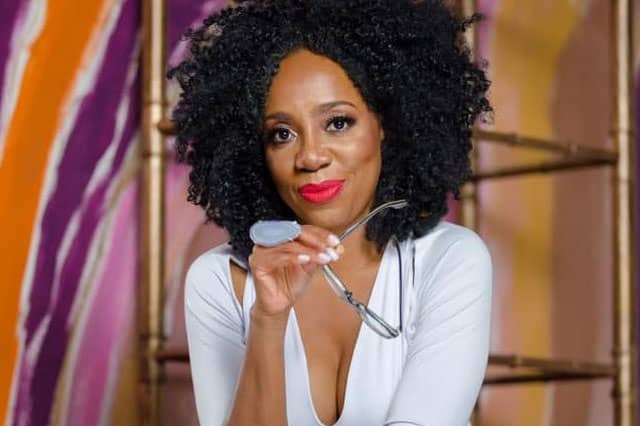This Wall Street veteran is working to bring diversity to corporate America

Dee C. Marshall is working to bring diversity to corporate America.
Source: Dee C. Marshall
When Dee C. Marshall worked on Wall Street, she was often the only Black woman in the room.
These days, she is striving towards making corporate America more diverse. After the killing of George Floyd by a Minneapolis police officer last May, she’s seen a definite shift in attitude.
“Before May 25, diversity was dying,” said Marshall, who is CEO of Diverse & Engaged, a Newark, New Jersey-based diversity research program that works with Fortune 100 companies.
“We weren’t allowed to talk about being Black outside of Black employee resource groups.”
Now she sees a renewed commitment to the cause, as evidenced by new job titles popping up such as head of civil rights or chief diversity officer.
“Things are changing, but it is going to take time.”
Marshall, who is in her 40s, was raised by a single mother in New Brunswick, New Jersey. She worked right out of high school before going to college and then got her master’s degree.
More from Invest in You:
Here’s what prominent Black Americans want the next generation to know
President Biden pledges to fix the racial wealth gap. Here are his plans
Black-owned businesses hope this round of PPP won’t fail them
She spent her time on Wall Street at various companies, including Merrill Lynch, in training and leadership development. Yet the day after the 9/11 terrorist attack was a defining moment.
“I decided I was going to pursue my purpose in life,” Marshall recalled. “I didn’t want to go back to business as usual.”
She continued to work full-time for the next several years, in order to pay the bills, before being able to strike out on her own with Diverse & Engaged. She’s now retained by companies to do their diversity training and leadership development.
Black workers hold just about 3% of executive or senior-level positions in Fortune 500 companies, according to the Equal Employment Opportunity Commission. There will be just three Black CEOs once Merck CEO Ken Frazier steps down at the end of June. That includes one Black woman, Rosalind Brewer, who will take the helm of Walgreens Boots Alliance in March.
There are two areas that companies need to focus on, Marshall believes.
One is changing the workplace culture and increasing diverse representation within the ranks. That includes not just hiring more Black workers and vendors, but also paying Black men and women the same as White men. Black workers make a median 75.6% of White wages, according to the Economic Policy Institute’s State of Working America Wages 2019.
Companies also need to focus on specific demographics such as Black, Asian, Native American and disabled workers, Marshall said.
“Allow for each diverse dimension to have its own space, and not just be BIPOC [Black, Indigenous and people of color].”
Secondly, systemic racism has to be dismantled. That should be done in a company’s policies, performance review process and hiring panels, she said.
“Focus on leading and managing from a multicultural lens,” Marshall advised.
She also encourages Black employees to speak out about their work environment.
“Look around the room,” she said. “If there is no diversity there, own your voice.
“Speak up for the world that you want to live in.”
— Reuters contributed to this report.
SIGN UP: Money 101 is an 8-week learning course to financial freedom, delivered weekly to your inbox.
CHECK OUT: 3 money moves helped me save $100,000 by age 25, says Break Your Budget blogger via Grow with Acorns+CNBC.
Disclosure: NBCUniversal and Comcast Ventures are investors in Acorns.




